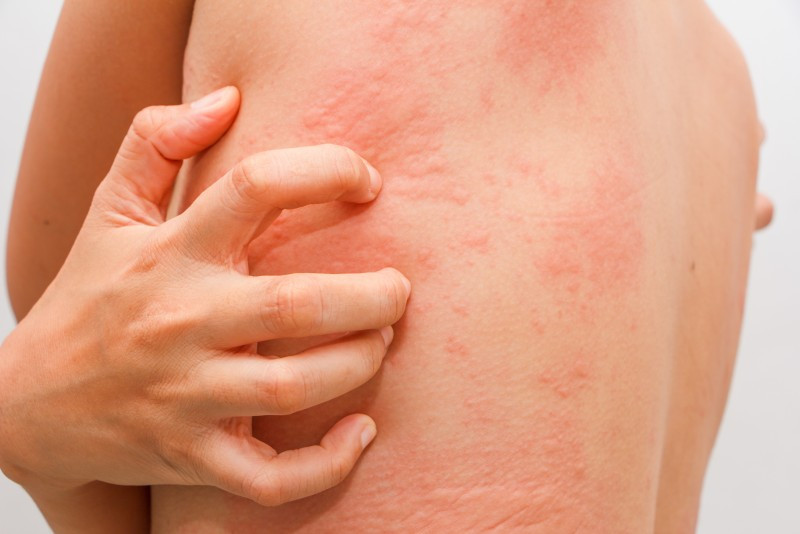Hives are welts that occur on the skin and cause irritation. They are usually a symptom of an allergic reaction, but there are many potential causes of hives. The good news for potential hive sufferers is the presence of a variety of supplements available that can help you ward off a case of them.
A Look at Hives
Hives, medically known as urticaria, are a usually mild and short-lived
allergic reaction that takes place on the skin. However, long term cases of hives can occur as well and brought on by other causes. Hives are the physiological result of the release of histamines into the blood, something which the body does to combat infections and toxins.
Hives in most cases are either skin-colored or red in appearance. They are often small and circular, but can be bigger and misshapen as well. After hives break out on a person's skin, they can come and go. They are
typically itchy have the potential to spread.
Causes of Hives
There are several types of allergens that can cause hives. In each case, it is important to determine what the trigger(s) is/are for hives. The people who are most likely to experience outbreaks of hives are those who have
allergies. This includes allergies to certain foods, some medications, pollen, and more.
Hives can also be chronic, a condition this is referred to as
chronic spontaneous urticaria (CSU). Cases of CSU usually result from infection, or from certain medical conditions.
Celiac disease, type I diabetes, lupus, and thyroid disease also can cause hives. Hives in these cases can be uncomfortable and difficult to treat, but usually last only for a brief time before disappearing.
Note: If you ever develop hives on your tongue or throat, immediately consult a medical professional. If hives are accompanied by anaphylaxis (which includes difficulty breathing, vomiting/nausea, swelling, and dizziness), call 911 immediately, as this is a life-threatening reaction.
Natural Remedies for Hives
Depending on the cause of a case of hives, they can be prevented or treated by way of some natural nutrients and supplements. One or more of these supplements could be of help in mitigating hives for you and/or your family.
Aloe vera is recommended for most skin ailments, and this includes hives.
Aloe vera applied to the skin can cool the skin and relieve itching, pain, and redness associated with hives. Aloe vera has prominent antimicrobial and anti-inflammatory properties.
Ginger is a worthwhile natural hives remedy that can have an
antihistamine effect. This, along with ginger's ability to combat inflammation and reduce itching from hives, make it a remedy worth considering.
Iron supplementation can have real benefits for those with CSU.
Roughly two-thirds of people with CSU are deficient in iron. Supplementing with iron for one to two months has been shown to have a marked positive effect in most cases. Speak with a medical profession before taking iron for CSU, since it can have side effects in some people.
Turmeric has strong
anti-inflammatory and antihistamine properties, which make it useful for combating an outbreak of hives.
Vitamin D could be instrumental in relieving some cases of hives. One prominent study cited at National Institutes of Health found that
vitamin D deficiency is linked to CSU. Correspondingly, this study showed that consistent supplementation with vitamin D can greatly reduce CSU symptoms in those with the condition.
Hives do not have to run their course unabated. If they occur, first determine their cause – a health-care provider can help, and then consider how the above supplements could be of help in mitigating them. It is recommended that you speak to your health-care provider before using any of these supplements.

